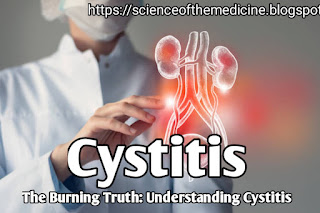Cystitis is a common urinary tract infection (UTI) that affects millions of people worldwide. It's characterized by inflammation of the bladder, often caused by a bacterial infection. In this article, we'll explore the causes, symptoms, and treatment options for cystitis.
What is Cystitis?
Cystitis is a type of UTI that occurs when bacteria enter the bladder and cause inflammation. It can affect anyone, but women are more prone to developing cystitis due to their shorter urethra.
Causes of Cystitis
The causes of cystitis can vary, but common factors include:
- *Bacterial infections*: Bacteria, such as E. coli, can enter the bladder and cause infection.
- *Hormonal changes*: Hormonal fluctuations during menopause or pregnancy can increase the risk of cystitis.
- *Poor hygiene*: Poor genital hygiene or wiping techniques can introduce bacteria into the urethra.
Symptoms of Cystitis
The symptoms of cystitis can vary, but common signs include:
- *Painful urination*: Pain or burning during urination is a common symptom of cystitis.
- *Frequent urination*: Frequent or urgent need to urinate can be a sign of cystitis.
- *Blood in urine*: Blood in the urine or cloudy urine can be a symptom of cystitis.
Treatment Options
Treatment options for cystitis typically involve antibiotics to clear the bacterial infection. In some cases, pain relief medication may also be prescribed.
Prevention
Preventing cystitis involves maintaining good hygiene and urinary tract health. This includes:
- *Drinking plenty of water*: Staying hydrated can help flush out bacteria from the urinary tract.
- *Practicing good hygiene*: Wiping correctly and keeping the genital area clean can reduce the risk of infection.
- *Urinating when needed*: Avoiding holding in urine for extended periods can help prevent bacterial growth.
Conclusion
Cystitis is a common UTI that requires prompt treatment to prevent complications. By understanding the causes, symptoms, and treatment options, individuals can take steps to manage their condition and reduce the risk of future infections. If you're experiencing symptoms of cystitis, it's essential to consult with a healthcare provider for personalized guidance and support.

.jpeg)

